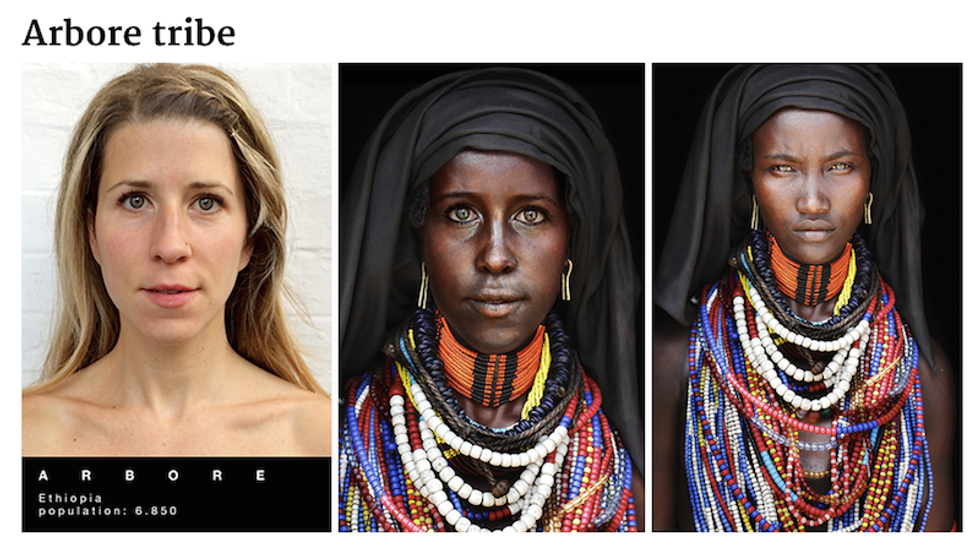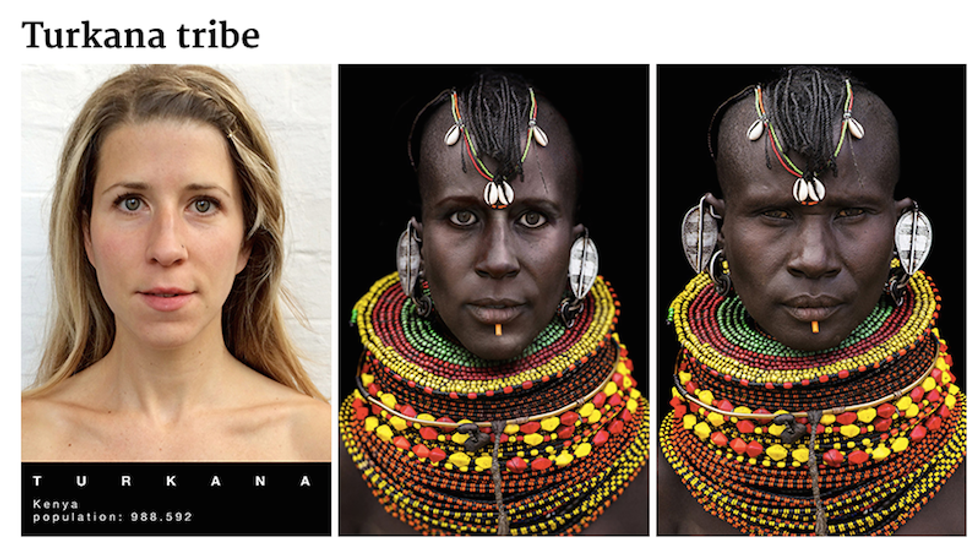Recently, Hungarian journalist Boglarka Balogh took to the Internet to raise awareness for African women who are nearing extinction within their respective tribes. The writer and human rights lawyer created the campaign "I Morphed Myself Into Tribal Women To Raise Awareness Of Their Secluded Cultures" in late December. It uses seven stunning images of women from the Himba, Turkana, Mursi, Arbore, Daasanach, Karo, and Wodaabe communities, says The Guardian.
But there is one problem - African women are not actually pictured in the campaign. In fact, the pictures actually feature Balogh herself sporting blackface.

In light of the project, many have taken to the Internet to comment on Balogh's use of "seven types of blackface." The backlash included messages such as:
“This is not your history. Stay in your own lane."
“You can practically feel the ignorance washing over you like those firehoses they turned on black protesters back in the good old days."
“This is cultural appropriation, and even though your efforts may have been in good faith, I find that your own photos are taking away from the beauty of what you are trying to showcase.”
The aftermath caused Balogh to release an official apology on BoredPanda, in which she defended her use of "tribal art." In an interview with Buzzfeed News Balogh said, “I was just presumably not aware how sensitive this subject is and how something can have a completely different meaning a thousand or two thousand kilometers away than in Hungary."
She's referring to the racial differences between the U.S. and Hungary. Cultural appropriation is primarily an American issue. There is a larger racial disparity between black and white people in the U.S. that includes a history of myriad racial struggles. However, does the lack of racial problems in Hungary give Balogh a free pass to
I don't think so. Cultural appropriation is a huge problem. A culture is not a costume, a trend, or a phase. I truly don't believe that Boglarka Balogh meant to be offensive or mock African tribes. However, it's strange that a humanitarian, one who claims to visit and assist African countries frequently, would choose to leave a vital component out of her project - African women.

























